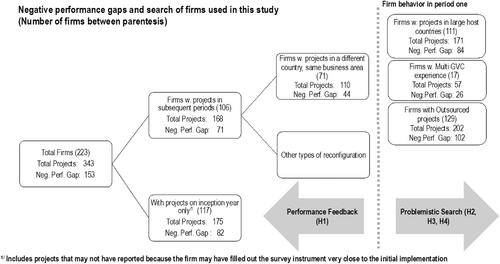Geographical reconfiguration in global value chains: Search within limited space?
Abstract
Research summary
Negative performance feedback in offshoring service activities entices firms to undertake geographical reconfiguration of their global value chains (GVCs) as a substitute for, or complement to, change of governance modes, decomposition of offshored activities, or shift of local service providers. In this study, we build on performance feedback theory and the concept of problemistic search to examine the extent to which firms move offshored service activities to new countries when facing negative performance gaps. We also examine if these relocations take place within a search space limited by the managers' cognitive span. We formulate a set of hypotheses revolving around this idea of search within a limited space. Our hypotheses are supported when tested on a sample of global sourcing projects undertaken by 223 firms between 1995 and 2012.
Managerial summary
The essence of reconfiguration is the continuous search for efficient combinations of functions, local service providers (when functions are outsourced), governance modes, and—in our case—locations. Limiting the search for improved combinations to fewer locations entails a higher dependence on these locations maintaining the country-location-specific advantages that made them attractive in the first place. It is thus possible that multinational enterprise (MNE) managers who reconfigure their GVC in a geographically bounded way in the long run will struggle to compete with MNEs that search for optimality within a broader range of locations as possible remedies for the GVC operations that experience negative performance gaps.


 求助内容:
求助内容: 应助结果提醒方式:
应助结果提醒方式:


